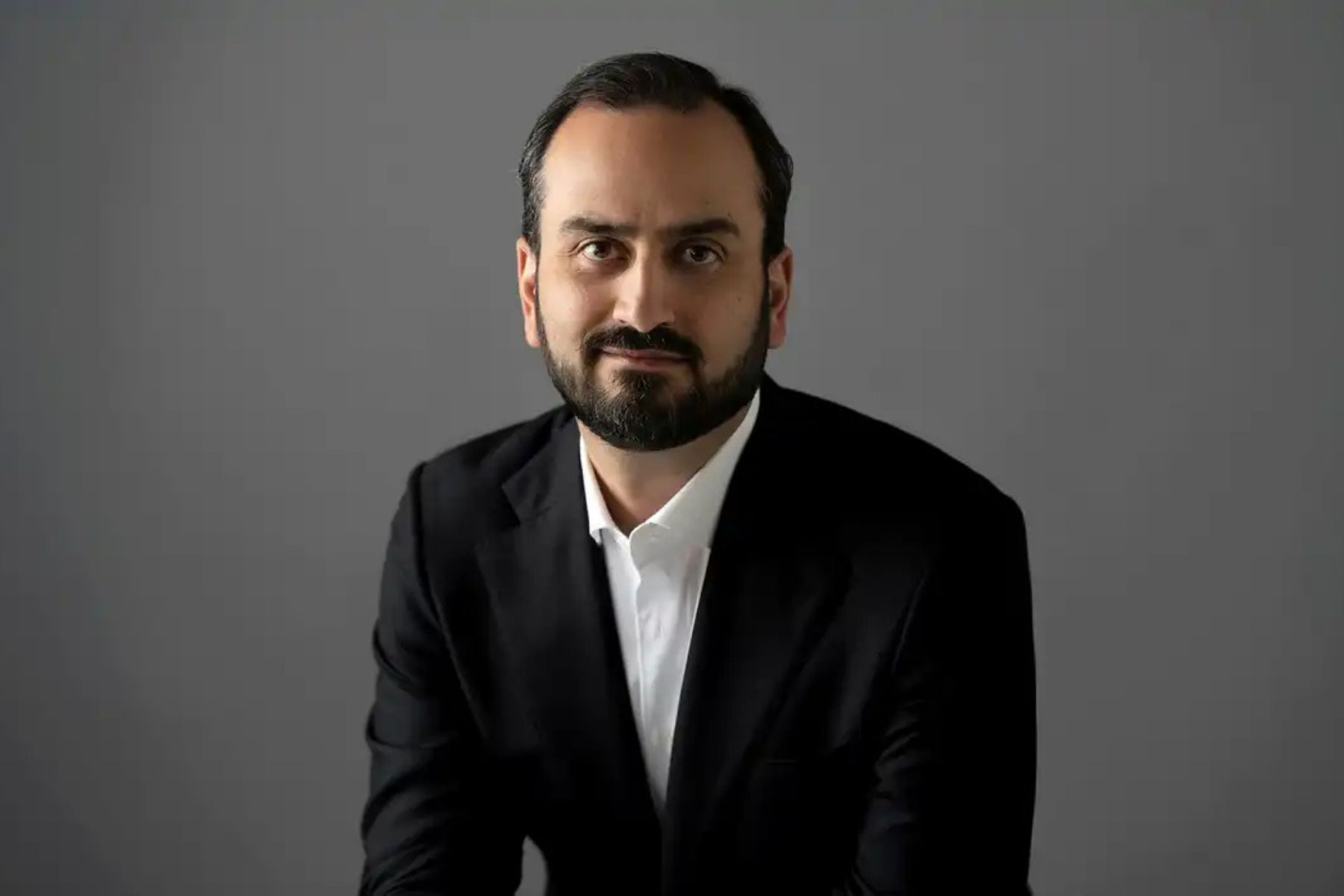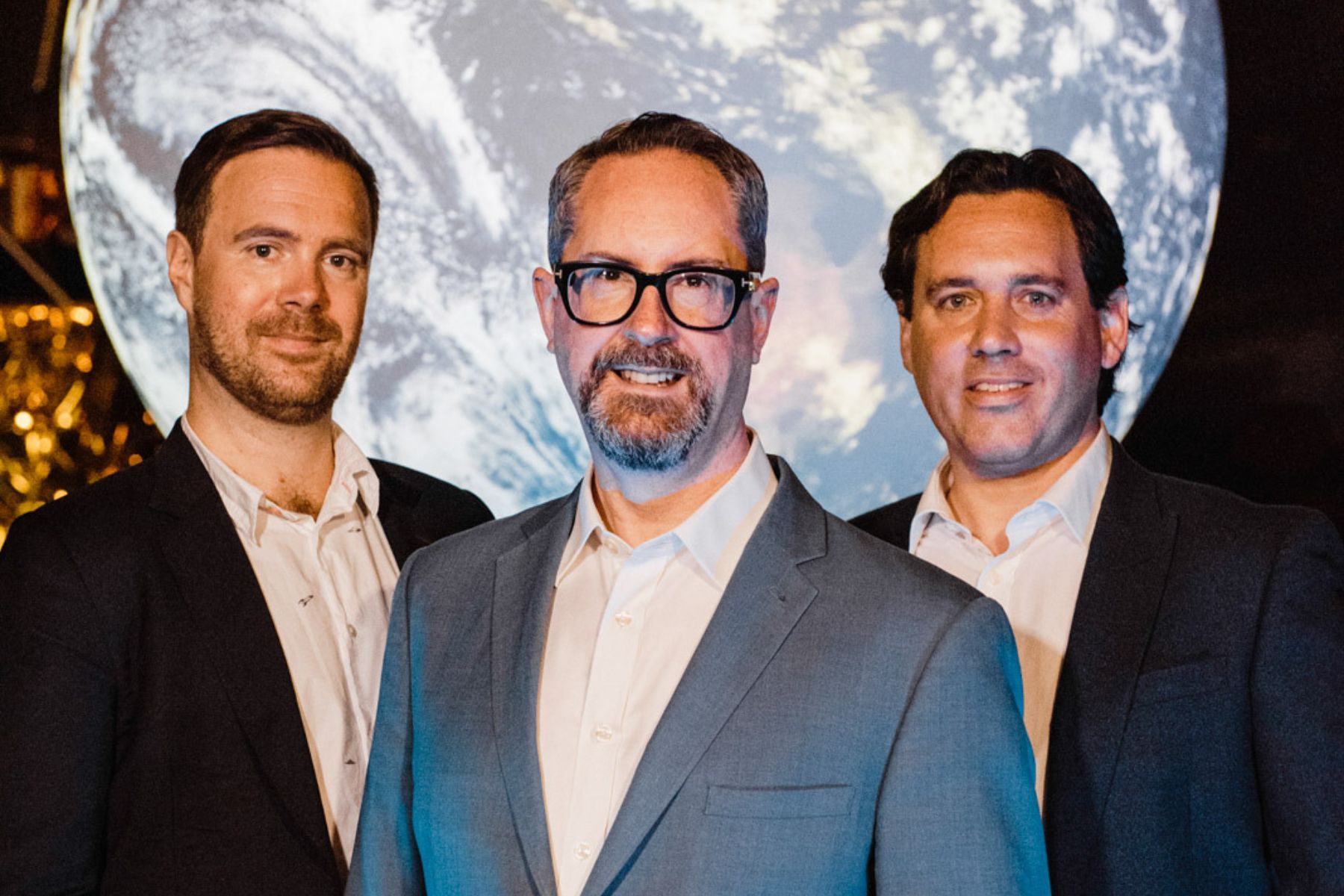15 minutes with Harry Stebbings: Elon Musk, tech bros, and why he doesn't back climate startups

Harry Stebbings, podcaster, investor and founder of 20VC, doesn't mince his words when it comes to climate tech.<br><br>In a no-holds-barred interview with Impact Loop in Stockholm, he explains why he's not investing in climate, what he thinks of the "tech bro" critique of Project Europe, and why the continent needs its own Elon Musk.<br><br>"Talent just doesn't want to build in climate right now."


"Let's f*cking gooo!!", Harry Stebbings shouts out at the stage of a 20-hour vibe-coding hackathon held in August by AI unicorn Lovable and Project Europe, a new initiative to back young European founders, of which Stebbings is a co-founder.
Amid the chaos, Impact Loop managed to snag an interview with the 29-year-old Stebbings who, outside of Project Europe, runs his own venture capital firm 20VC and the popular Twenty Minute VC podcast.
In just about 15 minutes, over a hamburger and fries (mine, Stebbings is heading out to dinner), we both cut straight to the point.
You've invested in dozens of companies through 20VC, but nothing in climate. Why?
"I think it takes time [for a company] to mature. When you look at the depth of good climate change companies today, there's not enough high quality climate change companies to warrant it being an independent category. And when you look at the performance of the majority of climate change funds, they've been terrible."
How?
"Sadly, climate becomes massively deprioritised when it's a bad economic environment, and it becomes a less obvious expense for the largest corporations in the world. Which means they're not very good businesses to fund. And when that happens, funding doesn't flow and builders don't build. Talent just doesn't want to build in climate right now."
At the same time, there's a huge climate crisis, how do you feel about that responsibility as an investor?
"My job is fundamentally to make as much money for my investors as possible. I don't have a social impact mission – I'm here to make as much money as possible and I'm pretty unwavering about that."
I'm here to make as much money as possible and I'm pretty unwavering about that
"My investors invest in everything from children's cancer hospitals to solving some of the most challenging mental health conditions in the world. If I make as much money as possible [that can go] to terrible, terrible medical situations – that's my number one priority. Would I like to be in climate? Yes, of course I would. I would much rather solve that than do another enterprise."
But are there really no good impact or climate companies, according to you?
"I do not think so, no."
If that's so brutal, what are your thoughts on sustainability and the climate collapse?
"I think it's terrifying and it's something that we should absolutely be putting resources towards. But fundamentally, I follow talent and talent is not there."
Where’s the talent instead?
"AI.”
Defence?
“So many people will lose so much money in defence because they have no idea how to sell to the largest defence industry ministers. They think that it's just a technology game. The fundamental reason why Anduril (an American defense tech company specialising in autonomous systems, Impact Loop's comment) is so successful, is because you have a product visionary in Palmer [Luckey], you have a go-to-market leader in Trae [Stephens] who understands how to sell to the biggest governments in the world, and then you have an operations master in their CEO, Brian Schimpf. You can't just have one."
So you don't do defense, basically?
"We do anything. My job is to find the best founders in the world. But I don't believe in thematic funds. I also believe the best founders lead you to industries. Torsten Reil, the founder of Helsing (a German defence technology company, Impact Loop's comment), is a generation-defining founder, and I would invest in whatever he does. I'm so founder-led. I don't care what our businesses do. I care that we back generation-defining founders."
You've posted on Linkedin about the importance of speed and how you invested in a founder within 24 hours. I commented on that post saying (kind of) that speed can also lead to men investing in other men because that feels close to home. Could that be the case for you?
"No. I am [being] brought generational defining founders anywhere and I have to move fast. That company, Peec AI, I'd never met the founder before. It didn't come from an old boys club. It was a Linkedin outreach email from me. There was no inner circle."
Still, you have invested in quite a lot of founders who seem similar to you…
"I want people like me. Because then I will back unhinged obsessive people who will not stop until they win. I don't try to get more women or more dropouts or more Asian people or more Buddhists, because that would be discriminatory against everyone else. I will try and get the best people."
I want people like me. Because then I will back unhinged obsessive people
How many women have you backed?
"I don't know. We've done 170 investments now. But probably between 20 and 50. It's not a great number and I'm not claiming to be better than [other VCs], but it's probably like 25%."
Whilst we’re talking about this… You got quite a lot of criticism when you founded Project Europe, because almost all the funding came from men.
"Except for the CEO, who is a woman."
"Truth be told, the people who tried to take me down on that were doing it for their own gains and they saw incredible personal brand growth by trying to take me down. There are two people who work in Project Europe and they're both women. The critics ignored them. How's that possible? The investor stack ranked the companies in Europe on the highest valuations and we invited the most valuable founders to invest."
"I don't think you can change the data. We want to inspire young girls to code and to build amazing companies, but I don't think you can historically change the data."
How do you think we could change moving forward so that, for example, here [at the hackathon] there could be as many women as men? What do you think needs to be changed?
"I think more role models, like Melanie [Perkins] at Canva. She's amazing. And she's showing that you can build a hundred-billion-dollar company as an incredible female CEO. You know, why do I always push my mother? Because I couldn't do what I do without my mother."
"I actively try to get the best people. I don't try to get more women or more dropouts or more Asian people or more Buddhists. I don't because that would be discriminatory against everyone else. I will try and get the best people."
We have four minutes to go. Tell me more about why you are doing this hackathon.
"I'm doing this because I want to see Europe matter. In a world where China and the US are killing us, we're slipping into irrelevance. Sweden's super lovely, London's super lovely. But the world doesn't give a shit about Stockholm. And the world doesn't give a shit about London."
You are not alone in saying that Europe is slipping into relevance. But what are the facts behind that statement?
"I mean, GDP and productivity growth, stagnating economies, stagnating labour forces, ageing populations and the inability to fund them, ailing financial markets, ailing public markets…it's pretty depressing reading if you want to go through it. Mario Draghi did a brilliant report, which kind of stipulates what we can do. It's not fun reading, but I think my job is to say: ’Hey, we have amazing people and the future can be really bright’, to keep people here and build amazing companies."
There's also a lot of data showing the pros of Europe: Less bureaucracy, higher living standards and so on.
"Well, you can be happy and irrelevant. And then living standards, yeah, propped up largely by social welfare systems that are actually not sustainable. Truth is: we're in a bad spot so let's make it better. I’m trying to be positive. I'm trying to make sure that we are good. And I think we need to inspire a generation of people to build in Europe. I think Europe needs an Elon Musk."
An Elon Musk?
"Yes, a 'pump master' who can show the ambition and the scientific breakthroughs that we can do. And to encourage a generation of builders that you can build rockets with unparalleled ambitions."
Our time is up, is there anything you'd like to add?
"Not enough people are talking about the Lovable effect and the impact that Lovable and Anton [Osika] has had on Stockholm. But you've never seen more excitement about being an entrepreneur than what you see now in Stockholm and that's because of Lovable. It takes one to start a movement."
This interview has been edited for length and clarity.
Get full access to Europe's new platform for impact news
- Quality journalism, interviews, investor profiles and deep-dives
- Daily newsletter with top stories, latest funding rounds and roundup to keep you in the loop
Keep reading – get in the loop!
- Håll dig i loopen med vårt dagliga nyhetsbrev (gratis!)
- Full tillgång till daglig kvalitetsjournalistik med allt du behöver veta inom impact
- Affärsnätverk för entreprenörer och investerare med månatliga meetups
Fortsätt läsa – kom in i loopen!
- Håll dig i loopen med vårt dagliga nyhetsbrev (gratis)!
- Full tillgång till daglig kvalitetsjournalistik med allt du behöver veta inom impact
- Affärsnätverk för entreprenörer och investerare med månatliga meetups








